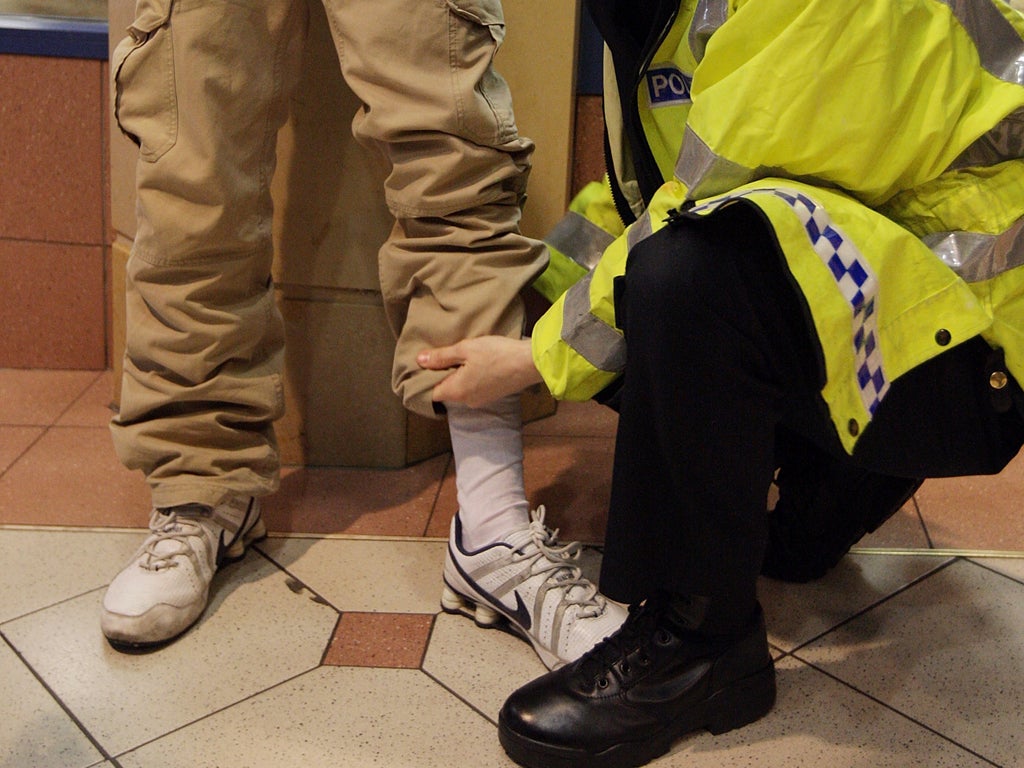Stop and Search: Drugs and the aggravating factor of being black
A study has found that in forces across England and Wales, drug policy was a major cause of racial inequality in the justice system

Despite taking fewer illegal drugs than their white peers, black people are six times more likely to be stopped and searched for drugs in the UK, according to a report by Release and the London School for Economics (LSE). If you live in Dorset, the area with the highest disparity, the report found you are 17 times more likely to stopped in the street and searched for drugs if you happen to be black.
Northumbria was the only UK force which where black people were less likely to be searched than white people, according to the Release/LSE report, The Numbers in Black and White. Nationally the report also found that Asian people were 2.5 times more likely to be stopped than their white peers.
The inequality doesn't stop there, because if found with drugs, black people are then twice as likely to be charged as white offenders, according to the same report.
You might hope that once you are in court, justice will be blind and treat you equally, but the report found black people are jailed at six times the rate of white offenders. While it might be over-egging the pudding to say being black in the UK is a criminal offence, it seems it is at least an aggravating circumstance.
The study, which used Home Office data and freedom of information responses from police forces across England and Wales, found that drug policy was a major cause of racial inequality in the justice system.
The Government's crime survey in 2009/10 found that white people use drugs more frequently than most non-white communities (9.5 per cent of white people admitted using drugs compared to 5.4 per cent of everybody else and 6.2 per cent of black people) but the black slant to the stop and search figures suggest police forces just don't believe this.
Home secretary Theresa May launched a consultation on stop and search powers in July which will end next week. This will look at the racial disparity in the figures as well as asking why of 1.2m searches each year only seven per cent lead to arrests.
All of this is more than just another tale of woe from the black community, these counterproductive drug laws and policing practices hit the whole country.
When I was younger being stopped by the police was a weekly occurrence and the taste of those searches lingers even now. I remember humiliation as passersby made snap judgements about me, the impotence of being ordered around by officers who had already decided what sort of person I was, and mostly I remember how it made me feel like I was being watched in my own city.
In my mid-teens I was stopped at least once a fortnight and although the officers were usually polite, it was hard for my friends and I to see them as anything other than our tormentors. These feelings have left their scars and I still have an inbuilt wariness of police officers - even though I'm way too old now to draw their suspicions.
I would like to think of myself as an asset to the country, but the battle to feel as if I truly belong and as though opportunities are for me and not just other people, has been long and arduous. If a nation is united it will work together when the going gets tough. But this is less likely if some communities feel the instruments of the state are not really on their side. Inequality in Stop and Search practices only play into these feelings and compound the problem.
The Home Office is asking people to share their experiences of Stop and Search before 24 September
Maurice Mcleod is a London-based journalist, and blogs at http://marmosetmowords.wordpress.com/

Join our commenting forum
Join thought-provoking conversations, follow other Independent readers and see their replies